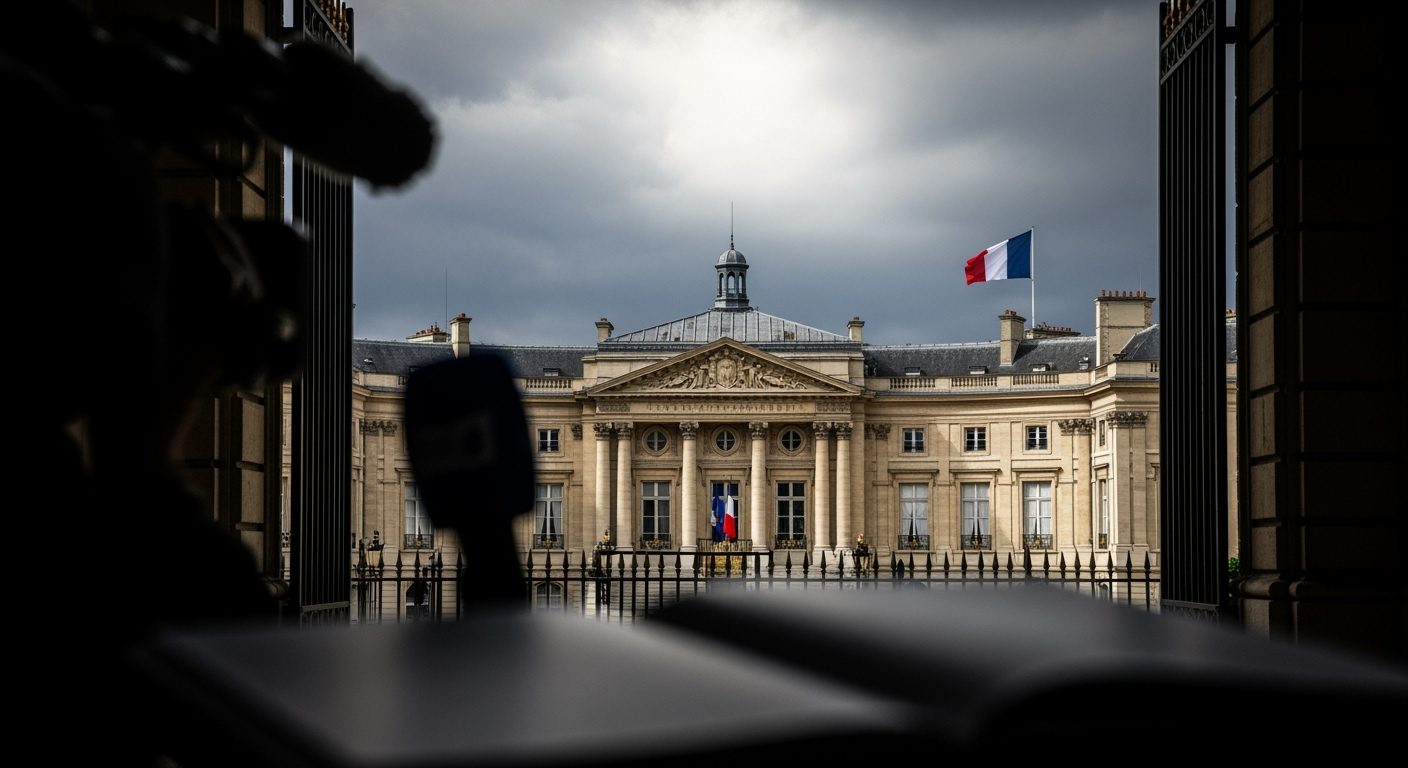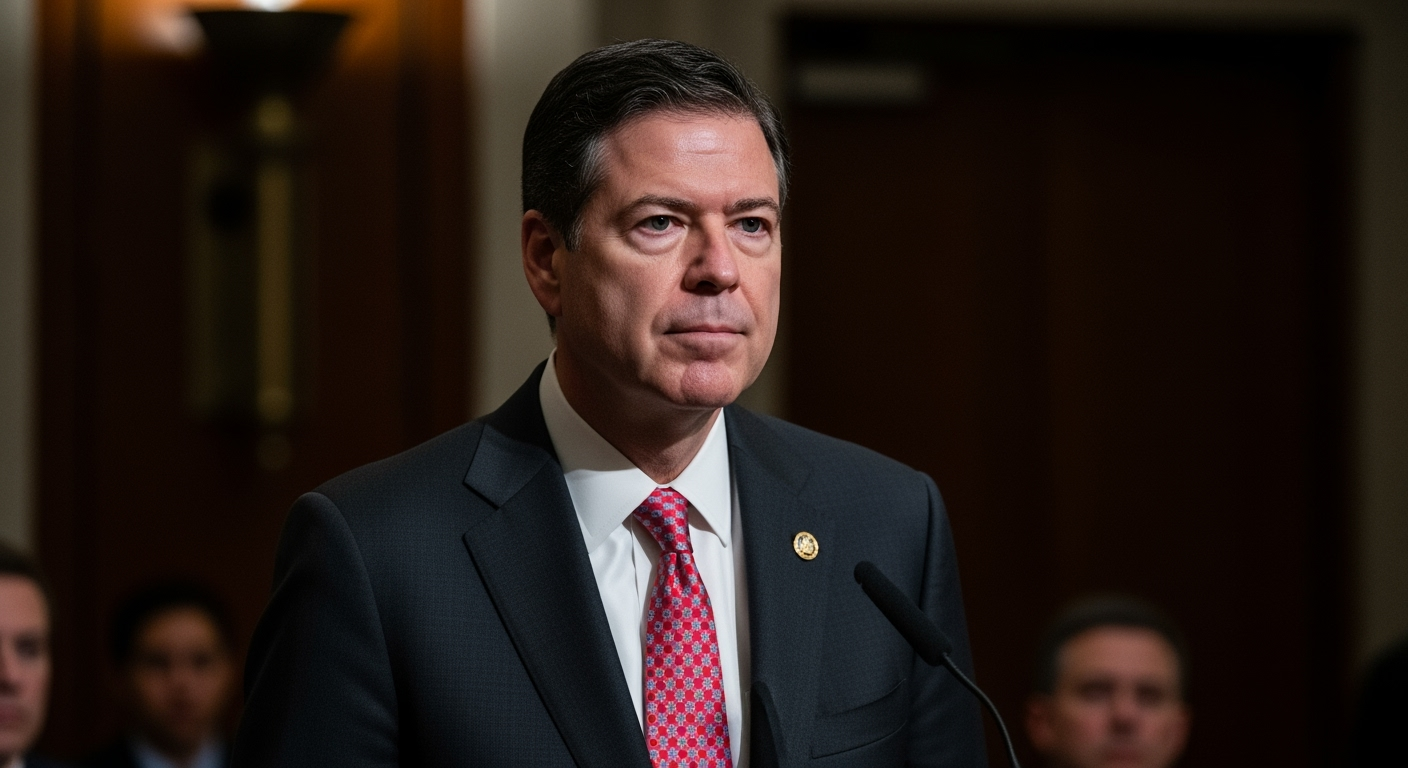Related Articles

Ecuadorian Government Decries 'Assassination Attempt' on President Noboa Amid Escalating Protests

French Political Stalemate Nears Resolution as New Prime Minister Expected Within 48 Hours





Alexandria, VA – Former FBI Director James B. Comey today pleaded not guilty to charges of making false statements to Congress and obstructing a congressional proceeding, marking a dramatic escalation in a legal battle widely perceived as driven by political retribution. The high-profile arraignment, held in federal court in Alexandria, Virginia, before U.S. District Judge Michael S. Nachmanoff, reignites a fierce national debate over the integrity and independence of the Justice Department. Comey, who has consistently maintained his innocence, vowed to prove his case at trial, stating he has "great confidence in the federal judicial system".
The charges stem from Comey’s September 2020 testimony before the Senate Judiciary Committee, during which he allegedly denied authorizing leaks to the news media and obstructed an inquiry into those disclosures. If convicted, the former FBI chief could face a maximum of five years in prison. The charges against Comey represent an unprecedented move, targeting a former senior government official in a case that legal observers and critics contend blurs the lines between legitimate law enforcement and political weaponization of the justice system.
The indictment against Comey was handed down by a federal grand jury on September 25, just days before the statute of limitations for his 2020 testimony was set to expire. This narrow window for prosecution was navigated under highly unusual circumstances within the Justice Department. The process gained momentum after former President Donald Trump publicly urged his Attorney General, Pam Bondi, to pursue charges against Comey and other perceived political adversaries. Trump's long-standing grievances against Comey date back to the FBI's investigation into Russian interference in the 2016 presidential election, a probe that consumed much of Trump's first term and which he consistently decried as a "witch hunt".
A pivotal development preceding the indictment was the abrupt replacement of Erik S. Siebert, the U.S. Attorney for the Eastern District of Virginia. Siebert had reportedly declined to prosecute Comey, citing insufficient evidence after career prosecutors in his office reinvestigated the allegations. In his place, Trump appointed Lindsey Halligan, a White House aide and former personal attorney for Trump, who had no prior experience as a prosecutor. Halligan reportedly rushed to file the charges, even as internal memos from career prosecutors in the Eastern District of Virginia outlined reservations about the strength of the evidence and recommended against pursuing a case. This move intensified concerns about political interference, particularly given that a previous special counsel, John Durham—appointed by a Trump administration Attorney General—had reportedly found "zero evidence" to support false statements or obstruction charges against Comey related to the same Senate testimony.
The prosecution of James Comey has ignited a firestorm of criticism from legal experts, retired judges, and political commentators who warn of the dangerous implications for the rule of law and the independence of the Justice Department. Critics argue that the case represents a significant departure from long-established norms designed to shield the Department from political influence, norms that were solidified in the aftermath of the Watergate scandal to ensure prosecutorial decisions are based on evidence, not political expediency. The appointment of a U.S. Attorney with no prosecutorial background, coupled with the reported disregard for career prosecutors' assessments and prior investigative findings, has been highlighted as particularly alarming.
This is not an isolated incident in the ongoing saga of alleged political weaponization. The Trump administration has undertaken several actions viewed as targeting political foes within the legal system, including pressure to investigate Democratic figures and the firing of Comey's daughter, Maurene Comey, from her prosecutor position. Such actions, experts contend, risk setting a precedent where the tools of justice can be wielded to punish political enemies, rather than to uphold impartial justice. The perceived willingness to override career professionals and pursue charges despite a lack of consensus on evidentiary strength is seen by many as directly undermining public trust in the country's legal institutions.
James Comey's not-guilty plea sets the stage for what promises to be a protracted and highly contentious legal battle. His defense team, which includes veteran federal prosecutor Patrick Fitzgerald, is expected to mount a robust challenge to the indictment. A key element of their strategy will likely involve motions to dismiss the case on grounds of selective or vindictive prosecution, arguing that the charges were brought due to political motives rather than a fair application of the law. The defense may also leverage the findings of former Special Counsel John Durham, who, despite being appointed by the Trump administration to investigate the origins of the Russia probe, reportedly found no basis for criminal charges against Comey related to his congressional testimony.
The specifics of the indictment itself remain somewhat sparse, primarily accusing Comey of denying authorizing an associate to serve as an anonymous source to the news media and obstructing a congressional proceeding. However, the absence of detailed supporting evidence in the public record could present challenges for the prosecution, especially given the internal skepticism reportedly expressed by career lawyers within the Justice Department. Comey's steadfast denial of wrongdoing and his expressed desire for a trial indicate his intention to vigorously defend his reputation and challenge the validity of the charges.
The arraignment of former FBI Director James Comey on charges of lying to Congress marks a significant moment in American legal and political history. It encapsulates years of intense partisan conflict and raises profound questions about the resilience of democratic institutions under sustained political pressure. The upcoming legal proceedings will not only determine Comey's fate but will also serve as a crucial test of the Justice Department's ability to maintain its independence and uphold its foundational principle of impartial justice.
As the case unfolds, the nation will be watching closely for how the judiciary navigates a prosecution so deeply entwined with political grievances. The outcome will have far-reaching implications, shaping public perception of the justice system, influencing the conduct of government officials, and potentially redefining the boundaries of presidential influence over law enforcement for years to come. The integrity of the process itself, as much as the final verdict, will define this historic chapter.